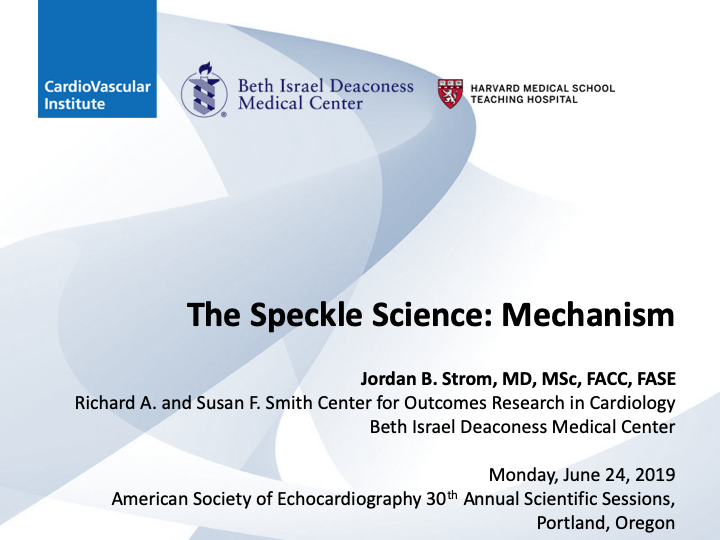
I'm pleased to share our newest article (bit.ly/2X5LI8D) in @JournalASEcho led by @BIDPlymouth lead sonographer @FostelloS who spearheaded a weekly #EchoFirst #QI sonographer performance feedback program. @ASE360 @GWhalleyPhD @MerriBremer @BonitaEcho @IACaccred @TheSDMS
1/ Increasing imaging volume has put a unique strain on sonographers who are asked to acquire more complex studies and perform detailed analysis in the same or less time. This may contribute to misdiagnosis or errors in data entry that may prolong time needed to analyze studies.
2/ We evaluated a system of weekly sonographer performance feedback on rates of errors. Physicians were mandated to evaluate sonographer performance on 26 technical errors and 17 scan omissions, 2018-2020 using the customizable @EncaptureMD #EchoFirst reporting software. 

3/ Sonographers were aware of evaluations but only provided with feedback via weekly emails from the technical director, starting 1/2019. We evaluated error rates 2019-2020 vs. 2018 (pre-feedback). 

4/ Out of a total of 20,942 TTEs, errors occurred in 9.7% of cases including 7.2% technical errors and 3.4% scan omissions. Most commonly these were absence of an ICD9/10 dx code or omission of #3D #EchoFirst images. 

5/ Compared with 2018, we observed a 60% reduction in error rates that persisted despite adjusting for sonographer, physician, and site of acquisition. 

6/ Of 17 total sonographers, 52.9% had improvement in both types of errors and 47.1% had no improvement. Improvement in scan omissions did not correlate with improvement in technical errors (r = 0.18).
7/ Interestingly, the degree of improvement in errors (but not number of errors) was inversely correlated with sonographer years of experience (r = -0.51, p = 0.03).
8/ @IACaccred #EchoFirst guidelines mandate quarterly #QI assessments, though the optimal frequency of #QI remains unclear. This study demonstrates the feasibility and challenges of a weekly/continuous #QI program with several important observations:
9/ 1) improvement was realized early with evidence of recidivism suggesting the need for continued feedback and oversight. 2) sonographers with the most experience improved the least suggesting habit may make change difficult.
10/ Sonographers were provided with weekly feedback relative to peers (anonymized), benchmarking that may lead to self-evaluation of areas for improvement.
11/ Most errors were those of data entry, which could be prevented upstream of a sonographer's involvement through improved EHR integration, checklists for study ordering, and future application of #AI
12/ Hopefully this can help serve as an adaptable model for a learning healthcare system aiming for continuous #QI within #EchoFirst laboratories @ASE360 - thank you to @FostelloS for leading this initiative and to coauthors Warren Manning and @JessicaLeeStout.
@StevenNoyes @AkhilNarangMD @GWhalleyPhD @ASE360 @AChoiHeart @dr_benoy_n_shah @gb_mackensen @boegel_kelly @BIDMCVFellows @VLSorrellImages @onco_cardiology @BidmcCvi @purviparwani @DavidWienerMD @ErinMichos @EGarciaSayan @the_gelf @HeartOTXHeartMD @RezaEmaminia @HeartToProve
@edwardagill @NadeenFaza @GregTatum9 @DrMarthaGulati @hahn_rt @JudyHungMD @HeartDocSharon @LanqiHua @iamritu @IACaccred @BWHCVImaging @jameschilee @JGrapsa @rajdoc2005 @OKhaliqueMD @AllanLKleinMD1 @LucySafi @lpbadano @Sugeng_Lissa @VietHeartPA @robertomlang
@MDMankad @nicoa002 @NinaRashediMD @donoxorn @David_Ouyang @NatQualityForum @RigolinVera @strain_rate @ray_stainback @mswami001 @JamesDThomasMD1 @jamil_tajik @ucsf_echo @seth_uretsky @VDelgadoGarcia @venkmurthy @RWASECEO @mirvatalasnag @rkwadhera @ddefariayeh @kgzimmerman
• • •
Missing some Tweet in this thread? You can try to
force a refresh







